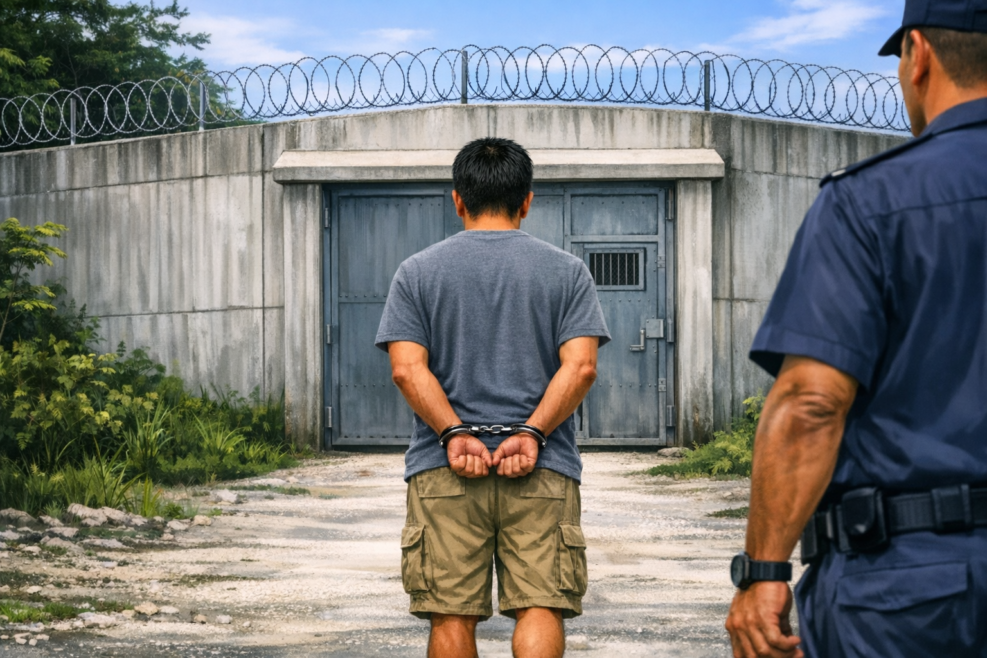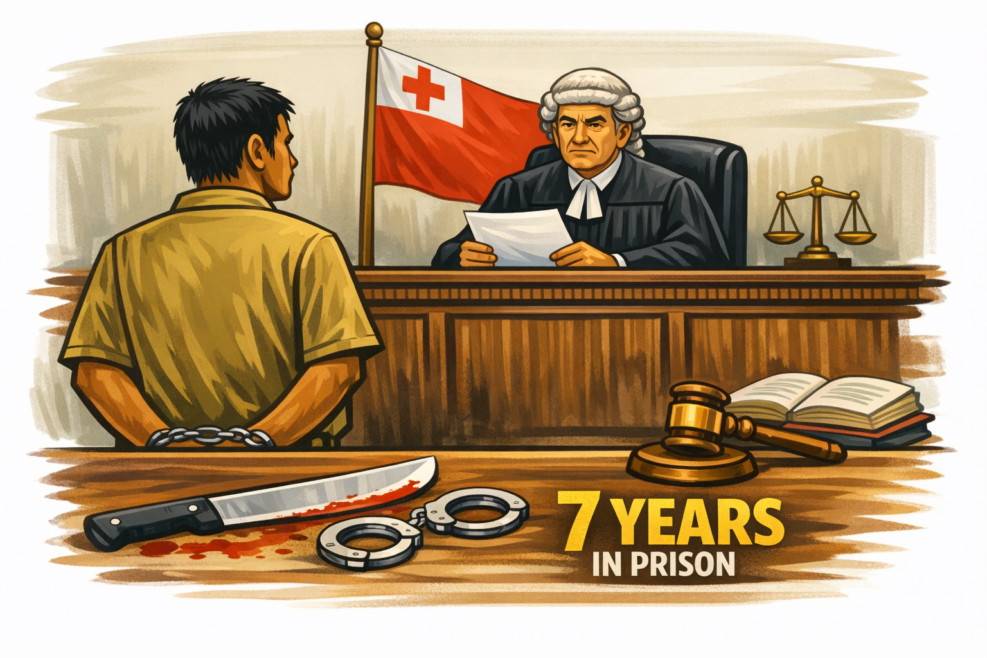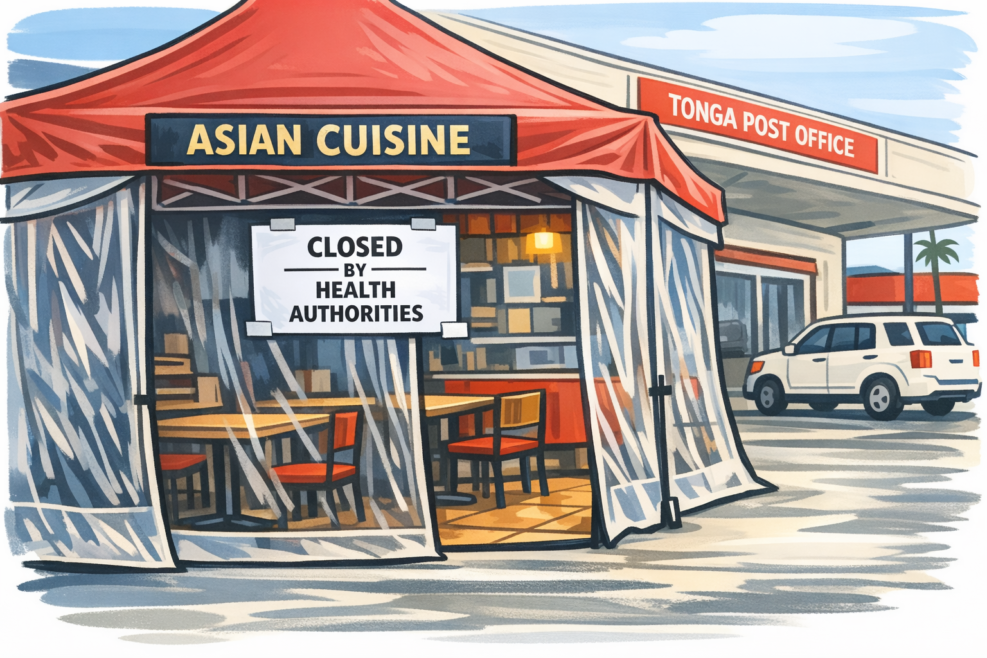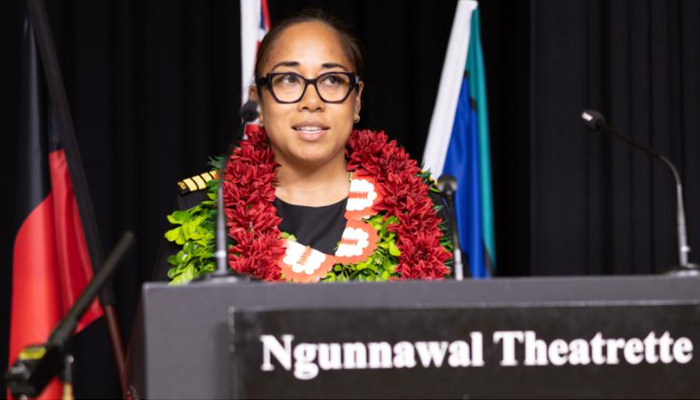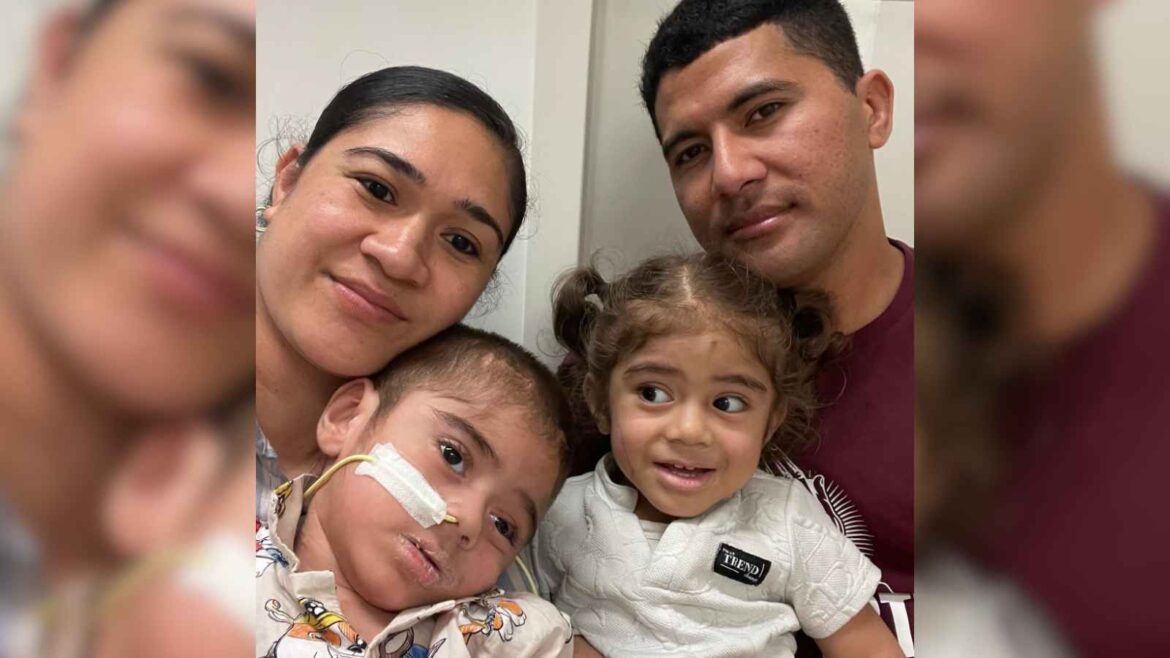By Gill Bonnett of RNZ and is republished with permission
This story discusses details of slavery and sexual abuse.
Two young people have told how they were held in slavery by an Auckland man for several years.
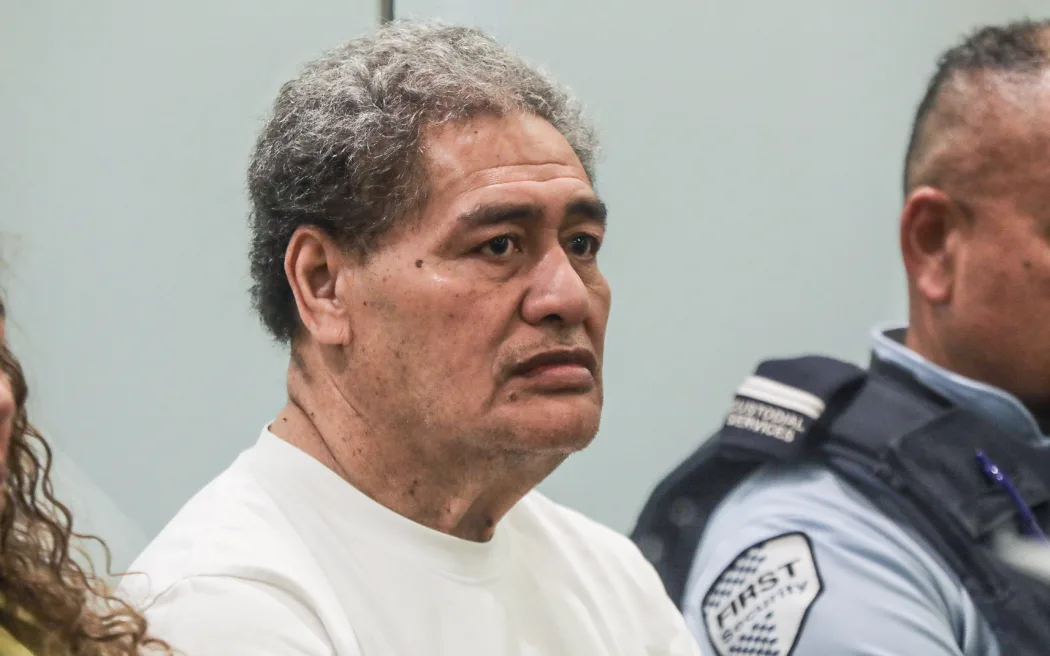
Former prison officer Moeaia Tuai, who is 63, was found guilty by a jury last year of two charges of slavery, two counts of rape and a string of other sexual assaults. He was on Thursday jailed for more than 16 years.
In a victim statement, one of the complainants said he took her youthful happiness, her voice and virginity, and she sometimes felt like her soul had left her body. “A lot of the time, I wish I wasn’t here,” she said, adding she wished she was living a normal girl’s dreams and living her life.
“But sadly, instead, I am one of those girls fighting demons and emotions I don’t deserve, every day,” she said.
“I find it very hard to communicate with others because I was always stopped from speaking with anyone and everyone… I often have flashbacks that just hold me back and I’d rather be home alone.
“To hear my mother’s heartbreak after 10 plus years of being kept apart – my mother’s first time in New Zealand was for a court case.”
She described Tuai and his relatives as a “narcissistic and hypocritical family”.
Suppression orders prevent any information likely to identify the victims from being published.
The second victim, a young man, spoke through tears about the good Samaritans who helped him when he ran away, frightened and not able to sleep at night.
The High Court in Auckland was packed with family and friends of Tuai and his victims, with several crying while the details of the offending were read out.
‘False testimony’
“My parents are now trying to rebuild the good life that was broken because of these people… A glass that has been shattered into tiny pieces cannot be put back together again.”
He spoke through an interpreter to the defendant and his relatives – some of whom gave evidence to the jury, but also faced allegations during the trial that they too were involved in the offending.
“To anyone who has given false testimony here, I pray that you feel repentance in your heart. A glass that has been shattered into tiny pieces cannot be put back together again.”
Only Tuai has been charged in connection to the offending, which occurred from 2016 to 2024.
The court heard he might face poor treatment, and need to be segregated if prisoners found out he was a Corrections officer.
Justice Michele Wilkinson-Smith was asked to consider whether Tuai could have a shorter sentence because of that, and also due to the effect his sentence would have on his sick wife. She granted a small reduction to the jail term – and noted his wife had also benefited from the offending.
Funding Tuai’s lifestyle
Sentencing Tuai, Wilkinson-Smith said the older complainant had been assured before arriving in New Zealand that he could finish his secondary school education, but he was immediately put to work at a boarding lodge that his wife’s sister owned.
After moving to Australia, Tuai took control of the male complainant’s internet banking, his bank card and passport, allowing him only $100 of his weekly pay for full-time work.
“He was funding your lifestyle,” she told Tuai, saying that only ended when the man ran away and managed to get a new passport to return to New Zealand.
Tuai, his wife and the second victim also returned to New Zealand, where she was told she could not go to school – and instead must supplement his state benefits by working cash in hand jobs.
“At one point, the female victim worked 57 consecutive days without a single day off, including weekends,” Wilkinson-Smith said.
“The evidence for that came from your own diary which recorded her working hours…You were using her as a source of labour and income, as you had previously used the male complainant. She had no autonomy and no access to the money she was earning.”
When she had a formal job, her estimated (lost) wages were $80,000.
Saddled with debts
She was ‘treated as property in every way’ by Tuai, who made her work for free, have sex with him, controlled her movements and restricted her ability to get help or report him.
Before he raped her, he bought alcohol to ply her with, using money from her own bank account.
“It is clear that as far as you were concerned, she was in New Zealand only for your benefit,” Wilkinson-Smith added.
He felt entitled to the money the two earned, ‘drained their bank accounts’ and threatened them with deportation, she said, leaving them saddled with debts through loans they were forced to take out.
Both young people suffered threatened and actual violence, and were told they would lose the right to stay in New Zealand if they did not “obey his orders” or alerted authorities.
The judge said slavery was not a “cultural misunderstanding” and she was worried about how widespread it might be.
“I hope that this case highlights for others that this is slavery. It is not legal. You cannot bring people to New Zealand to exploit them for their labour and income.”
Where to get help:
- Need to Talk? Free call or text 1737 any time to speak to a trained counsellor, for any reason
- Lifeline: 0800 543 354 or text HELP to 4357
- Suicide Crisis Helpline: 0508 828 865 / 0508 TAUTOKO. This is a service for people who may be thinking about suicide, or those who are concerned about family or friends
- Depression Helpline: 0800 111 757 or text 4202
- Samaritans: 0800 726 666
- Youthline: 0800 376 633 or text 234 or email talk@youthline.co.nz
- What’s Up: 0800 WHATSUP / 0800 9428 787. This is free counselling for 5 to 19-year-olds
- Asian Family Services: 0800 862 342 or text 832. Languages spoken: Mandarin, Cantonese, Korean, Vietnamese, Thai, Japanese, Hindi, and English.
- Rural Support Trust Helpline: 0800 787 254
- Healthline: 0800 611 116
- Rainbow Youth: (09) 376 4155
- OUTLine: 0800 688 5463
- Aoake te Rā bereaved by suicide service: or call 0800 000 053
If it is an emergency and you feel like you or someone else is at risk, call 111.
Sexual Violence
- NZ Police.
- Victim Support 0800 842 846.
- Rape Crisis: 0800 88 33 00.
- Rape Prevention Education.
- Empowerment Trust.
- HELP (Auckland): 09 623 1700, (Wellington): 04 801 6655.
- Safe to talk: 0800 044 334.
- Tautoko Tāne Male Survivors Aotearoa.
- Survivors Network of those Abused by Priests (SNAP) 022 344 0496.
Sign up for Ngā Pitopito Kōrero, a daily newsletter curated by our editors and delivered straight to your inbox every weekday.

